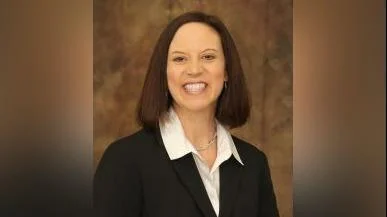Sen. Terri Bryant (R-Murphysboro) | senatorbryant.com
Sen. Terri Bryant (R-Murphysboro) | senatorbryant.com
Taking to social media this week, State Sen. Terri Bryant, R-Murphysboro, highlighted the impassioned testimony of Asa Newell, who spoke in favor of Senate Bill 240, addressing the need for the early detection of testicular cancer in men.
Newell, a Jefferson County resident and testicular cancer survivor, suggested the legislation and also carries an interesting story, which Bryant shared on Facebook, posting audio of his testimony, during which he recounted how, at the age of 17, he was diagnosed with state 3 testicular cancer on Sept. 11, 2020. He pointed out during testimony he had just started his junior year of high school.
“I was playing sports I was active in different clubs such as FFA, and I was diagnosed with testicular cancer,” he said in his testimony. “You know, instead of being able to go to school and worry about my next class, or worry about the next test, I was worrying about my next CT scan and my next chemotherapy treatment.”
The diagnosis hit like a ton of bricks, though Newell told lawmakers he initially believed he had the stage one form of the disease, but he underwent surgery and several CT scans, which found the cancer had advanced to his liver and kidneys. He noted in his presentation that several smaller tumors in his abdomen, as well as multiple tumors in his lungs, and one behind his heart.
For over a year I've been experiencing the signs and symptoms of testicular cancer, but because of the lack of information and education in our school systems, as well as public knowledge I did not realize that,” he told the committee.
Facing stage 3 testicular cancer, Newell said he was blessed to have the parents he has, both of whom were able to take time off work to care for their son. He noted that he moved to Indianapolis to live with them, where they stayed until January of 2022.
“In that time, I underwent 160 hours of chemotherapy three different chemo drugs Bleomycin, Cisplatin and Etoposide, this was this was made by Doctor Einhorn of Indiana University and it has a 95% cure rate,” he said. “The most important thing though about testicular cancer is that if caught early in stage one it has a 99% cure rate without the need of chemotherapy.”
Unfortunately, chemotherapy was a part of life for Newell after the diagnosis, and it took its toll on his body.
“Chemotherapy ravaged my body I was unable to walk by the end of it,” he said. “It had destroyed my muscle mass. I have heart issues now, and I'm at a higher risk for a heart attack earlier on not only that, but young men who understand who undergo all three rounds of this treatment have to be cautious because they are at a 24% higher rate of health issues later on in life.
Speaking from the position of a patient and not as a doctor or medical guru, Newell told the lawmakers information is key.
“I'm a survivor and to have more education in our school systems and more public knowledge and to get the conversation rolling about testicular cancer will save more lives than we can possibly imagine later on down the road,” he said.
Newell also shared his story on Facebook, detailing his trip to Springfield last week to present his testimony.
“Thank you to Sen. Terri Bryant, who filled bill SB240 to help support educating young men on the importance of knowing the symptoms of Testicular Cancer,” he said on Facebook. “I spoke to the Public Health committee and it passed in the committee. I was impressed by all of Senators who served on this committee and the question they asked and the concern they shared to help. “
The Illinois General Assembly noted on its website, Senate Bill 240 is sponsored by Bryant, Dave Syverson, Karina Villa and Andrew S. Chesney. According to the website, it would require males starting their freshman year of high school receive information on the disease.
According to the Mayor Clinic, signs and symptoms of the disease include a lump or swelling in either testicle. The scrotum may become heavy, or there could be sudden swelling, pain or discomfort, according to the website, and breast tissue may become inflamed or tender.
The Mayo Clinic also noted on its website that testicular cancer usually occurs in only one testicle.



 Alerts Sign-up
Alerts Sign-up